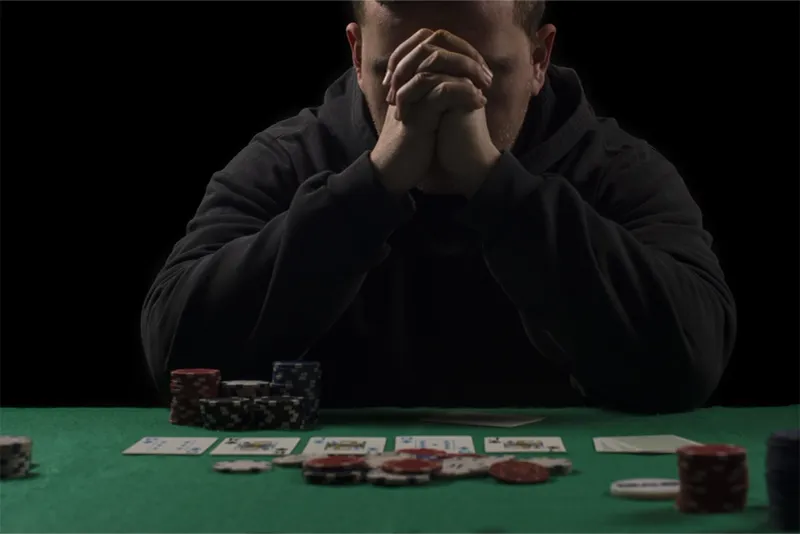30 Financial Red Flags That Signal It’s Time for a Divorce

Love might be blind, but money has a way of revealing the truth. You can survive a lot in a marriage—hard times, job losses, budget hiccups—but when financial issues become a pattern of secrecy, control, manipulation, or flat-out irresponsibility, it’s not just stressful.
It can be dangerous. Financial abuse is real. Financial incompatibility is real. And sometimes, the money problems aren’t the cause of the divorce—they’re just the biggest clue that something deeper is broken.
Here are 30 financial red flags that might mean it’s time to stop hoping things will change—and start protecting yourself.
1. They hide bank accounts or credit cards from you

If you find out they’ve been financially active behind your back—it’s a breach of trust. In a marriage, transparency in finances is key. Hiding accounts can indicate secrets or a lack of partnership. It speaks volumes about their priorities and your place in their life.
When money becomes a secret, it’s not just financial infidelity—it’s emotional. How can you build a future with someone when you’re not even on the same page? Trust is foundational in any relationship, and without it, what do you have?
2. They lie about how much they make

Transparency is foundational. If they’re hiding income, ask why. Earning isn’t just about numbers; it’s about honesty. When your partner lies about their earnings, it’s a crack in the foundation. How can you plan or dream together if you’re dealing with falsehoods?
This isn’t just a fib—it’s a shadow over your shared life. Financial honesty is a sign of respect and cooperation. If that’s missing, what else might be slipping through the cracks?
3. You discover secret purchases or loans

Hidden spending equals hidden priorities. Discovering secret purchases or loans is like finding a hidden chapter in your life’s story. It reveals what’s truly important to them, without your input. Are you partners, or are you living separate financial lives?
When money secrets emerge, it’s often a symptom of larger communication issues. Are you being sidelined in your own relationship? It’s not about the purchases—it’s about the deception.
4. They get angry or defensive when you ask financial questions

A healthy partner wants you to feel safe and informed. If financial discussions consistently lead to anger or defensiveness, it’s a red flag waving. Money talks should be about collaboration, not confrontation.
When questions are met with hostility, it may indicate deeper issues. Are they hiding something, or is communication just broken? Either way, it’s a warning sign. Financial peace often reflects overall relationship health.
5. You never have access to account information or logins

Control over finances is a control tactic—especially if they restrict your access. In a marriage, financial access should be as open as your hearts. If you’re locked out of accounts, both literally and figuratively, what’s the reasoning?
This isn’t just about dollars and cents; it’s about power and equality. When access is restricted, it raises the question: Are you partners or are you being controlled?
6. They frequently “forget” to tell you about big purchases

Surprise new car? Major investment? That’s not forgetfulness—it’s a red flag. If big financial decisions are made solo, it begs the question: Where is the partnership? Forgetting to tell you isn’t just an oversight—it’s a choice.
A choice to exclude you from a part of your shared life. Consistently being left out of decisions can erode trust and partnership.
7. They open credit lines in your name without your permission

That’s not love. That’s fraud. Opening credit lines without your permission isn’t just deceitful—it’s illegal. It’s a violation of trust and autonomy. Your name and credit are precious, representing your financial identity.
When someone tampers with that, they’re tampering with your future. This action is more than a financial misstep; it’s a betrayal.
8. They control all the money—even if you both work

This isn’t partnership. It’s power imbalance. Even if you both contribute financially, control should be shared. When one person holds all the reins, it’s a sign of imbalance.
Equality in financial matters speaks to equality in a relationship. If you’re just an observer of your own financial life, it’s time to question why. Control isn’t love; it’s a mechanism of dominance.
9. They give you an “allowance” and make you justify every expense

You’re not a child. If it feels demeaning, it is. Receiving an “allowance” from a partner can feel like a strange parent-child dynamic. It reduces your autonomy to make decisions. Justifying every expense?
That’s not budgeting—it’s surveillance. A healthy partnership involves mutual respect and trust, not financial policing. Question where this dynamic comes from and what it means for your relationship.
10. They guilt you for spending on anything for yourself

Even essentials. Even groceries. That’s not budgeting—it’s control. Guilt over spending can be suffocating, especially when it’s for your own needs. When your wants and needs are consistently minimized or criticized, it’s not about thriftiness.
It’s a means to diminish your confidence and independence. Ask yourself: Does this pattern reflect love and support, or is it a red flag?
11. They make all the financial decisions without including you

If you’re married but excluded, something’s wrong. Financial decisions should be joint ventures, especially in a marriage. Feeling sidelined in these decisions can lead to resentment and mistrust.
Partnership means sharing the joys and burdens together. If financial decisions feel like one-sided monologues, it’s time to voice your concerns. True partnership involves equal participation and respect.
12. They sabotage your efforts to become financially independent

Discouraging you from working, studying, or having your own account? Financial independence isn’t just a goal; it’s a right. When your partner sabotages your efforts to achieve it, it’s a glaring red flag.
Their actions are not just about money; they’re about control and limiting your freedom. It’s essential to recognize these tactics and understand the underlying intentions. Seek support and assert your right to financial freedom.
13. They threaten to cut you off financially during fights

Withholding money to punish or manipulate is financial abuse. In any relationship, using finances as a weapon is unacceptable. It’s a demonstration of control and a lack of respect.
Threats to cut you off create a toxic environment where security and peace are constantly undermined. Financial stability should be a shared commitment, not a tool for manipulation.
14. They constantly overspend and blow through budgets

Once in a while is a mistake. A pattern is a lifestyle. Constant overspending isn’t just about poor financial habits; it’s about priorities. When spending habits consistently derail budgets, it’s a sign of disregard for shared goals.
Financial irresponsibility can bleed into other areas of life, affecting trust and stability. It’s crucial to address these behaviors before they erode the foundation of your relationship.
15. They hide gambling or betting habits

Whether it’s casinos or crypto, secret gambling is a major red flag. Hiding such habits indicates a lack of transparency and possibly addiction. The impact isn’t just financial; it’s emotional and relational.
Secret gambling undermines trust and can lead to significant debt. Recognizing the signs early can prevent deeper issues from festering.
16. They take out large loans without discussing it

Debt affects you both. Unilateral decisions like this are dangerous. Taking out large loans without discussion speaks to a lack of partnership. It’s about more than money; it’s about respect and inclusion in significant decisions.
Such actions can have long-term financial consequences that impact both partners. Addressing these issues is vital for maintaining a balanced and respectful relationship.
17. They rack up debt and leave you to clean it up

That’s not just unfair. That’s reckless. Accumulating debt and leaving you to manage it alone shows a lack of responsibility and partnership. Financial burdens should be shared, not imposed.
This behavior reflects poor financial management and disregard for shared commitments. It’s essential to address the root cause and ensure both partners are on the same page to avoid future conflicts.
18. They repeatedly lose jobs due to irresponsible behavior

A toxic work cycle often bleeds into home life—and finances. Repeatedly losing jobs due to irresponsible behavior suggests a pattern of neglect and instability. It affects not only financial security but also emotional well-being.
Understanding the reasons behind such behavior can help address the underlying issues, but it requires willingness from both partners. Long-term stability depends on each partner’s commitment to growth and responsibility.
19. They refuse to save, plan, or think long-term

If they don’t care about the future you share, pay attention. Refusing to save or plan for the future is a sign of irresponsibility and lack of vision. It’s essential to share financial goals and work towards them together.
A refusal to engage in long-term planning reflects a disregard for shared dreams and security. Addressing this lack of foresight is crucial for building a stable future.
20. They financially support other people without your knowledge

Whether it’s family or an affair partner—money speaks. Financial support behind your back indicates a breach of trust. It’s not just about the money; it’s about secrecy and priorities.
Understanding why your partner feels the need to keep such support hidden is crucial. Open communication and transparency are key to resolving these issues before they cause further damage.
21. They laugh at or dismiss your financial goals

Belittling your dreams is emotional sabotage. Financial goals should be respected and supported, not ridiculed. When your partner dismisses your aspirations, it reflects a lack of respect and empathy.
Achieving financial dreams requires encouragement and mutual support. If your goals are constantly undermined or dismissed, it’s a sign of deeper issues that need addressing.
22. You can’t talk about money without it turning into a fight

If conversations always end in shutdown or explosion, something’s off. Money talks should be constructive and collaborative. Constant fights over finances reflect underlying communication problems.
It’s essential to address these issues to maintain a healthy relationship. Productive financial discussions require mutual respect and understanding. If that’s missing, it’s a red flag for deeper relational issues.
23. They refuse to go to financial counseling or get help

Denial doesn’t solve debt. Refusing financial counseling reflects a refusal to address underlying issues. Seeking help shows willingness to grow and improve. When one partner denies the need for external assistance, it can hinder progress and resolution.
Financial stability often requires guidance, and counseling can provide valuable insights. A refusal to engage in this process indicates deeper resistance to change.
24. They leave everything to you and take zero responsibility

You shouldn’t have to carry the emotional and financial weight alone. When one partner refuses to take responsibility, it creates an imbalance. A partnership means sharing both burdens and joys.
Consistently leaving everything to one person reflects a lack of commitment and respect. It’s crucial to address this dynamic and ensure both partners contribute equally to the relationship.
25. They lie to family or friends about your financial situation

If they’re painting a fake picture, ask why they’re so invested in the lie. Lying about finances to others reflects insecurity and dishonesty. It’s not just about external appearances; it’s about the integrity of your relationship.
Understanding why your partner feels the need to lie can provide insights into deeper issues. Open communication is essential to address these concerns and build a foundation of trust.
26. They prioritize their wants over the family’s needs

That new toy for them over bills, kids, rent? Red. Flag. Prioritizing personal wants over family needs reflects selfishness and lack of responsibility. It’s crucial to align financial priorities for the well-being of the family.
When individual desires consistently overshadow collective needs, it indicates deeper issues of self-centeredness. Addressing these priorities is essential for preserving family harmony.
27. You feel constantly anxious, unsafe, or financially trapped

You should never feel like a prisoner in your own life. Financial anxiety in a relationship often stems from lack of transparency and support. Feeling trapped indicates a toxic dynamic that needs addressing.
It’s vital to recognize these emotions and understand their sources. Seeking external support and asserting your financial independence can help alleviate these feelings and restore your sense of security.
28. They won’t agree to a prenup, postnup, or fair asset split

Refusing fairness equals protecting their power, not the relationship. Prenups and fair asset splits are about security and equality. When one partner refuses to engage in these discussions, it reflects a lack of transparency and trust.
It’s crucial to establish fairness and protection for both partners. Addressing these concerns ensures long-term stability and mutual respect in the relationship.
29. You’re staying mostly because of financial fear

If money is the only thing holding you there—it’s time to rethink everything. Financial fear can trap you in an unfulfilling relationship. Recognizing this fear and understanding its sources is crucial for personal growth and liberation.
It’s essential to evaluate your relationship and prioritize your happiness and well-being over financial dependency. Seeking financial independence can empower you to make choices based on love, not fear.
30. You’ve stopped trusting them—completely

When trust is gone, love can’t carry the weight alone. Trust is foundational to any relationship, and its absence creates a chasm. Addressing the root causes of distrust is essential for healing and rebuilding.
It’s crucial to communicate openly and seek support if needed. Without trust, a relationship struggles to survive. Evaluating the reasons behind lost trust can guide your decisions moving forward.
